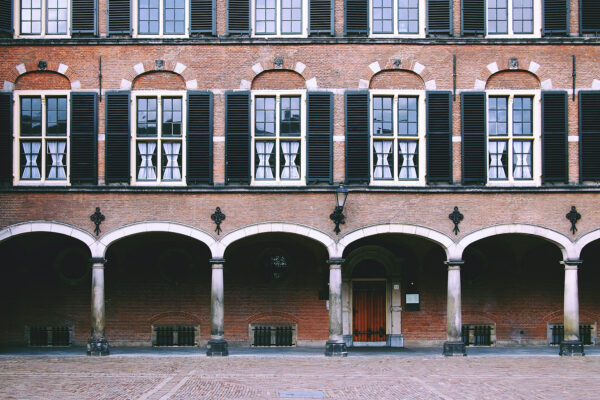
Dutch prime minister Mark Rutte appears to be weathering what he describes as the worst political crisis of his nine years in power.
Rutte’s four-party government has seen protests by builders and farmers against far-reaching plans to reduce nitrogen oxide pollution.
Now motorists are angry too. To cut emissions, the coalition has lowered the daytime speed limit on Dutch highways from 130 to 100 kilometers per hour. The measure is hugely unpopular in Rutte’s car-friendly liberal party.
Yet it remains faraway the largest in the polls and hasn’t lost support since the pollution crisis began.
Stable polls
The liberals have been on the upswing since April, when they polled as low as 16-17 percent. They are now at 19-22 percent, which would give them 29-34 out of 150 seats in parliament.
They currently have 32, down one from the election in 2017 due to a lawmaker’s defection.
The other three ruling parties are stable in the polls. The pro-European liberal Democrats have been at 6-8 percent since October. The small Christian Union has been at 4-5 percent for the duration of the government. The center-right Christian Democrats have moved up a little since the beginning of 2019.
What is the crisis about?
In May, the Council of State, an advisory body to the government and the Netherlands’ highest court, ruled that existing requirements for building and farming permits did not meet EU regulations for emissions. That put construction projects and farm expansions on hold.
The government has been scrambling to come up with a response that would allow infrastructure and housing projects to go forward without driving farmers out of business.
A proposal to reduce livestock prompted protests by farm owners, who created the worst traffic jam in the Netherlands’ history by clogging the roads with their tractors.
A revised proposal would adjust livestock feed to include an enzyme that reduces nitrogen oxide emissions from cows.
Reducing the speed limit is another attempt to cut emissions in one area to free up pollution space in another, in this case construction.
There will also be a €180 million fund to buy out farmers who voluntarily retire and emergency legislation to exempt coastal defense from strict pollution rules.
About a third of the Netherlands lies below sea level.
Consensus
Historians argue the need for cooperation in order to defend the low-lying country from floods is what gave the Netherlands its consensus culture, which, in turn, is probably the reason Rutte and his government haven’t lost support.
Far from imposing their plans on the country, the ruling parties have held exhaustive consultations with environmental and industry groups as well as local and provincial governments, which are responsible for building and farm permits.
Different local governments have made different rules, with those in the rural east making more concessions to farmers and those in the densely populated western half of the country prioritizing housing.
When some proposals, such as the plan to cut livestock, met strong resistance, they were withdrawn and replaced with something else.
I write for World Politics Review this week that the Dutch system may seem messy, but it produces better outcomes than most. The country ranks among the happiest in the world with the best health care in the EU. More Dutch people are employed than ever before, but half work only part-time, giving the Netherlands the shortest workweek in Europe. The Dutch economy ranks as the fourth-most competitive in the world.
The pollution crisis is far from over. Major cities still can’t build enough homes. Farmers, who know their industry is the biggest polluter of ammonia and nitrous oxide by far, still fear for their livelihoods. But so far Dutch voters are retaining confidence in their government and the country is muddling through.
